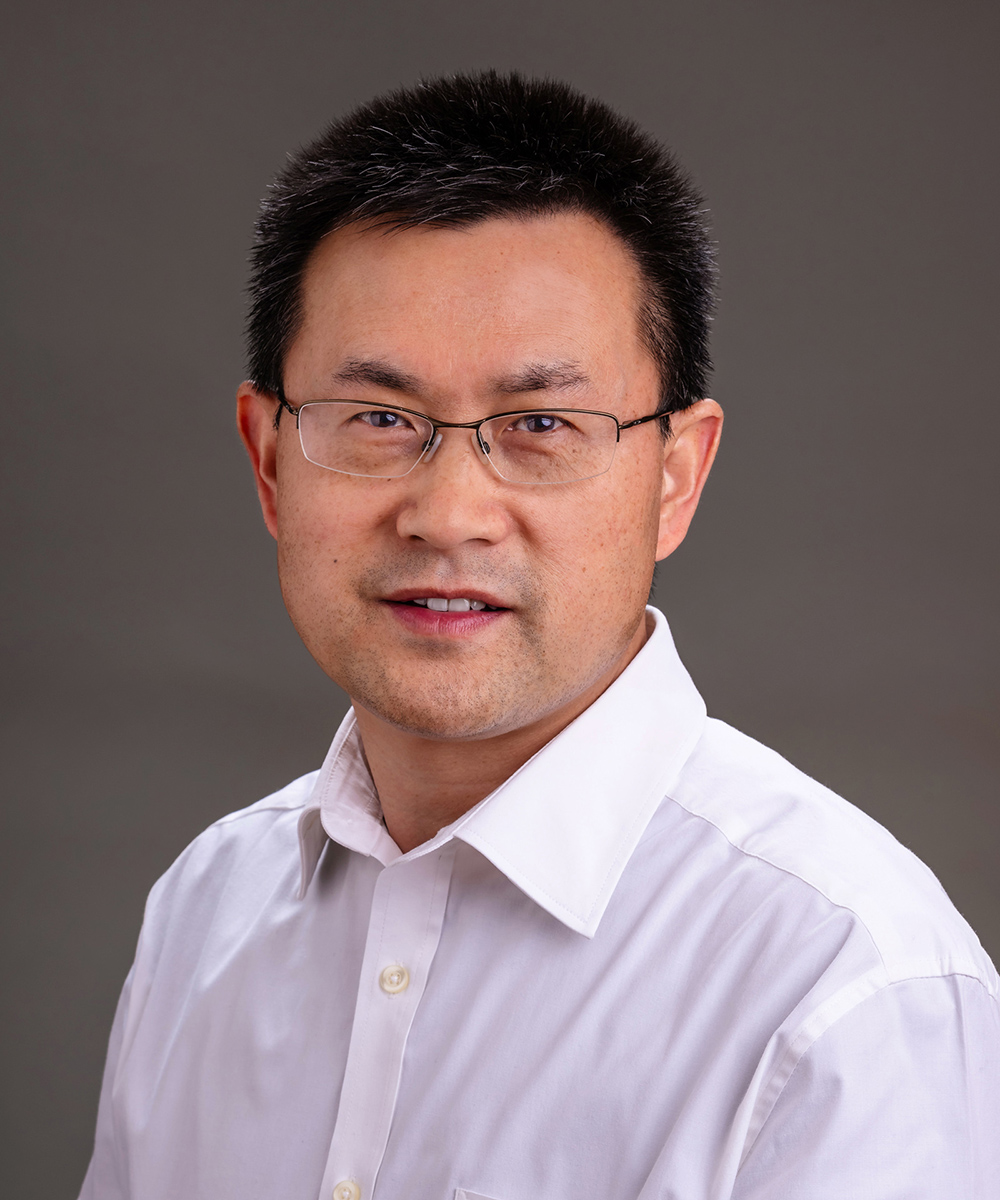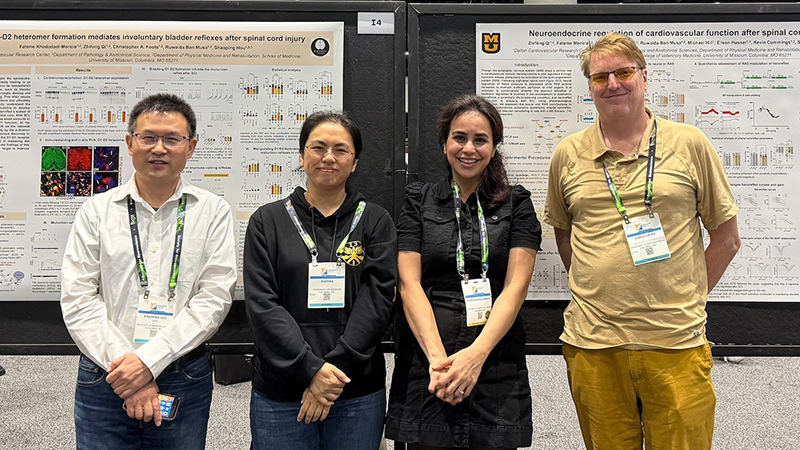Profile
The research work of Shaoping Hou, PhD, focuses on the many effects of traumatic spinal cord injury (SCI), including sensorimotor deficits and autonomic dysfunction, specifically lower urinary tract and cardiovascular dysfunctions. The disruption of supraspinal autonomic pathways creates abnormalities in multiple organ systems including compromised urinary, cardiovascular, respiratory, gastrointestinal, thermoregulatory, and sexual activities. Despite varied symptoms based upon the level and severity of the injury, the loss of descending regulation and subsequent maladaptation in the lower spinal cord underlie disordered autonomic activity after SCI.
Dr. Hou employs multidisciplinary approaches to study these dysfunctions, including neuroanatomical, physiological and cellular and molecular techniques, to elucidate supraspinal and intraspinal neuronal machinery of micturition and hemodynamics in the intact and SCI rat models. Recent findings revealed that spinal endogenous dopaminergic mechanisms regulate the recovered spontaneous bladder reflexes after SCI. Utilizing a variety of strategies, such as neural progenitor cell transplantation, passive exercise, and cell reprogramming, our team further attempts to rebuild neuronal pathways for autonomic functional recovery. In the central nervous system, injured axonal projections are particularly refractory to growth due to neural intrinsic and extrinsic factors. We are exploring effective strategies to increase growth capability and reduce inhibitory aspects for axon regeneration following SCI.
Academic Information
Office
134 Research Park Dr
Rm 302 Dalton Cardiovascular Research Center
Columbia, MO 65203
United States
Research Interests
- Mechanisms and therapeutic strategies for autonomic dysfunction after spinal cord injury
- Neuroendocrine regulation of hemodynamics
- Cell reprogramming, cell transplantation, axon regeneration
- Rehabilitation following spinal cord injury
- Molecular mechanisms of fibrotic scarring after neurotrauma
Areas of Expertise
- Animal models with spinal cord injury
- Cardiovascular disorders and micturition reflexes following spinal cord injury
- Neural and physiological recordings, neural tract tracing
- Cell transplantation and axon regeneration to restore autonomic function
- Exercise or rehabilitation after spinal cord injury
Education & Training
Degrees
2006 PhD, Capital Medical University, China
Fellowship
2008-2012 Center for Neural Repair, Department of Neuroscience, University of California, San Diego
2005-2008 Spinal Cord and Brain Injury Research Center (SCoBIRC), University of Kentucky
Awards & Honors
- 2022, Goldberger/Murray/Murphy Mentoring Award, Department of Neurobiology & Anatomy, Drexel University College of Medicine, Philadelphia, PA
- 2019, Best Mentor Award, Drexel University Graduate School of Biomedical Sciences and Professional Studies, Philadelphia, PA
- 2014, Rising Star Award (Junior Faculty), Department of Neurobiology & Anatomy, Drexel University College of Medicine, Philadelphia, PA
- 2007, Outstanding Student Abstract, The 25th Annual National Neurotrauma Society Meeting, Kansas City, MO
In the News
Publications
- Fernandes S, Oatman E, Weinberger J, Dixon A, Osei-Owusu P, Hou S.
The susceptibility of cardiac arrhythmias after spinal cord crush injury in rats.
Experimental Neurology Aug 8; 357:114200 (2022). PMID: 35952765 - Hou S, DeFinis JH, Daugherty SL, Tang C, Weinberger J, de Groat WC.
Deciphering spinal endogenous dopaminergic mechanisms that modulate micturition reflexes in rats with spinal cord injury.
eNeuro 8(4): 0157-21 (2021). PMID: 34244339 - DeFinis JH, Hou S.
Dual-pseudorabies viral tracing for spinal tyrosine hydroxylase interneurons involved in segmental micturition reflex circuitry in spinal cord injured rats.
Neurotrauma Report. 2(1):660-668 (2021). PMID: 35018366 - Qiao Y, Brodnik ZD, Zhao S, Trueblood CT, Li Z, Tom VJ, España RA, Hou S.
Spinal dopaminergic mechanisms regulating the micturition reflex in male rats with complete spinal cord injury.
Journal of Neurotrauma 38(6):803-817 (2021). PMID: 33297828 - Zhao S, DeFinis JH, Hou S.
Alterations of dopamine-related transcripts in A11 diencephalospinal pathways after spinal cord injury.
Neural Plasticity. (2021). PMID: 33510781 - Hou S, Saltos TM, Mironets E, Trueblood CT, Connors TM, Tom VJ.
Grafting embryonic raphe neurons reestablishes serotonergic regulation of sympathetic activity to improve cardiovascular function after spinal cord injury.
The Journal of Neuroscience 40(6):1248-1264 (2020). PMID: 31896670



